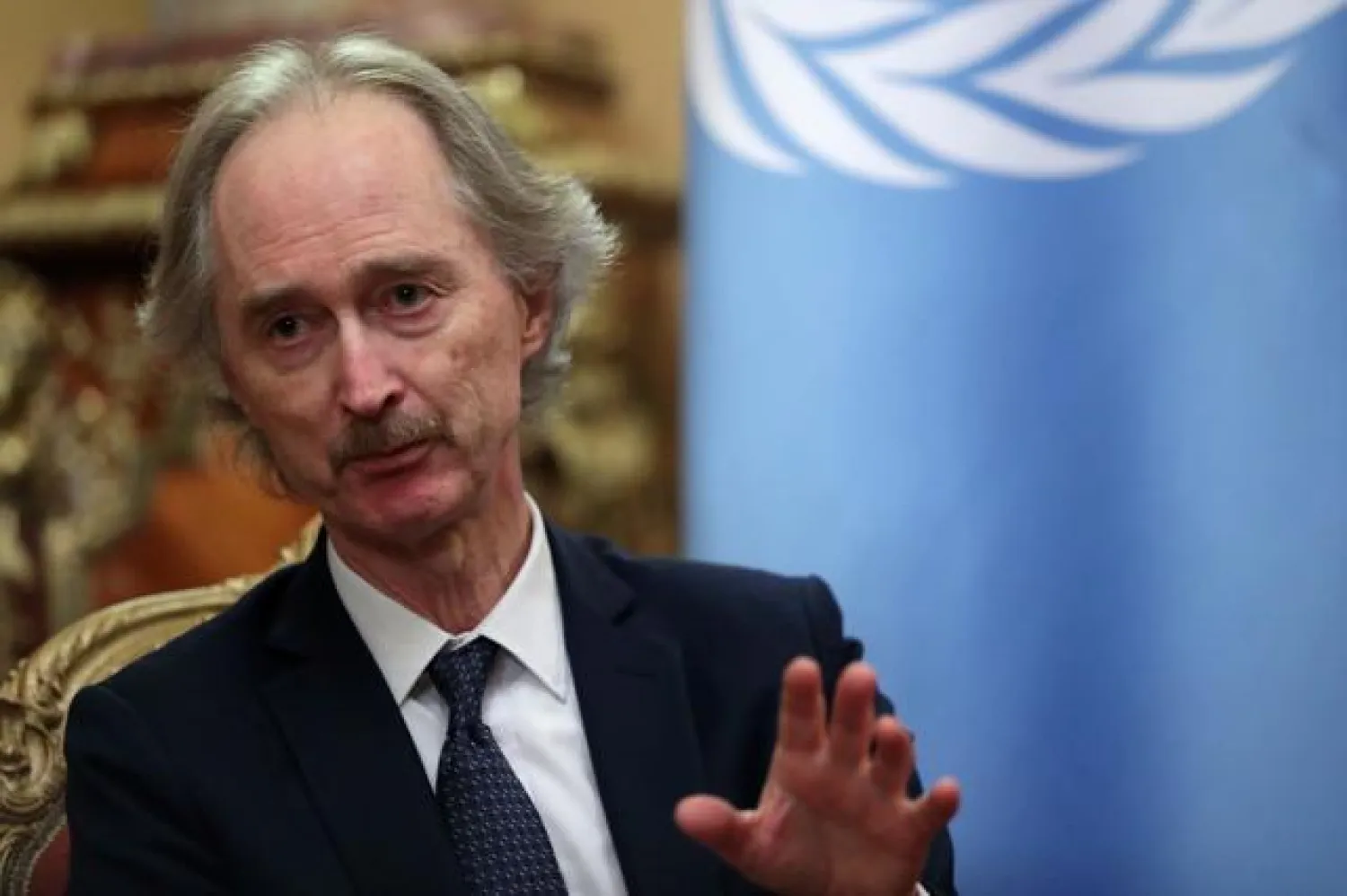Russia is sending messages to Syria and the West on its rejection of attempts to paralyze Syrian constitutional reforms ahead of the expected visit of the UN envoy to Syria, Geir Pedersen.
Moscow aims to pave the way for Pedersen’s talks in Damascus after he held two rounds of extensive discussions in Moscow with military and political officials.
Pederson met with Deputy Defense Minister Alexander Fomin and Foreign Minister Sergei Lavrov on Thursday for talks described as “comprehensive and detailed.”
The Russian Foreign Ministry issued a statement announcing that the two sides stressed there is no alternative to the political solution in Syria.
The parties discussed Syria's problems, including the situation on the ground, comprehensive humanitarian aid, and the improvement of the socio-economic situation.
The statement indicated that Lavrov and Pedersen also addressed in detail the work of the Syrian constitutional committee, which held its fifth meeting in Geneva late January.
The two sides expressed common views that “there is no alternative to a political solution to the Syria crisis within the framework of a process led and carried out by the Syrians themselves,” based on respect for the country’s sovereignty, independence, unity, and territorial integrity as is envisioned by UN Security Council Resolution 2254, read the statement.
The diplomats exchanged views on the humanitarian situation in Syria, stressing the need to mobilize comprehensive support to those in need on all Syrian territories, without discrimination, politicization, and preconditions, which would definitely facilitate the voluntary return of refugees and internally displaced persons.
"Russia expressed its support for the UN secretary-general's call for relaxing unilateral sanctions, including those imposed on Syria in circumvention of the UN Security Council, amid the coronavirus pandemic," it said.
Meanwhile, the Russian presidential envoy for Syria, Alexander Lavrentiev, said that Moscow is working closely with the Syrians and providing them with advice to help advance the political settlement, in a manner that ensures the country's national interests.
He indicated that some officials believe Russia’s presence means that Moscow has all the tools to influence Damascus, and Syrians must comply with the orders.
“This is a wrong interpretation and a wrong approach. We can only advise and make some recommendations, and the decision must be taken directly by the Syrian government.”
Lavrentiev's statements indicate that Moscow does not intend at the present time to pressure Damascus, despite the failure of the last round of the constitutional committee talks.
Sources in Moscow said earlier that the Kremlin will likely wait for the Syrian presidential elections before taking practical steps for a settlement.
Moscow believes it is imperative to initiate a comprehensive and constructive dialogue with the new US administration, which also constitutes a condition for advancing the settlement.
Russia is also convinced that it is crucial to support the constitutional committee, said Laverntiev, asserting there is no alternative to negotiations on constitutional reform.
He warned that if the talks are undermined by the international community, the government will have to work on the constitutional reform within Syria, which would put the committee under the direct control of the regime.
He also cautioned that this option will not be supported by the international community, further extending the crisis, and that "is not within the interest of any party."
Lavrentiev acknowledged Damascus’s demands in reaching an understanding of basic national principles, such as sovereignty and territorial integrity.
He noted that many fundamental principles and points should be addressed, adding it may be time to discuss the articles of the constitution as seen by the government and the opposition.









